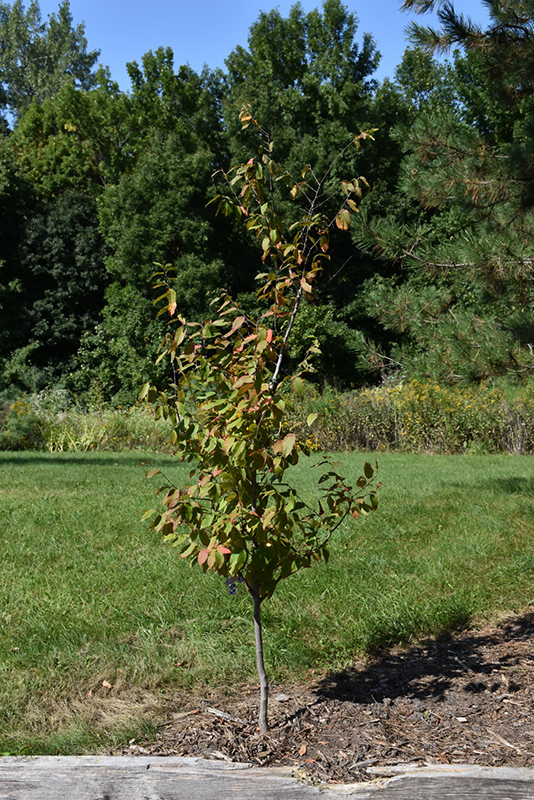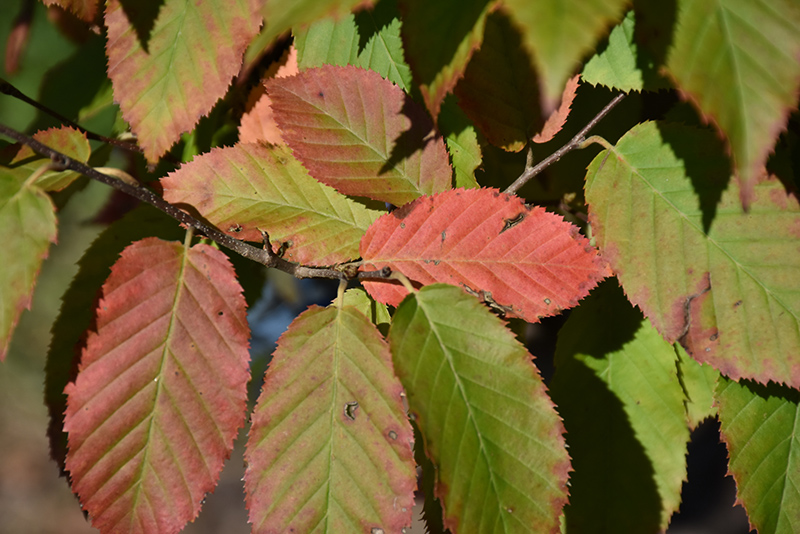Plant Finder Tool
Fire King™ American Hornbeam
Carpinus caroliniana 'J.N. Select A'
Height: 20 feet
Spread: 20 feet
Sunlight:
![]()
![]()
![]()
Hardiness Zone: 3b
Other Names: Blue Beech, Ironwood, Musclewood, Water Beech
Brand: Johnson's Nursery
Description:
An impressive upright form of this native tree that becomes more rounded with age; interesting gray bark is almost muscular in appearance; excellent orange-red fall color and curious hop-like fruit; a great shade tree for smaller areas
Ornamental Features
Fire King™ American Hornbeam has forest green deciduous foliage on a tree with an oval habit of growth. The serrated pointy leaves turn outstanding shades of orange and in the fall. It produces small clusters of brick red hop-like fruit from early fall to late winter, which fade to brown over time. The smooth silvery blue bark adds an interesting dimension to the landscape.
Landscape Attributes
Fire King™ American Hornbeam is a deciduous tree with a shapely oval form. Its average texture blends into the landscape, but can be balanced by one or two finer or coarser trees or shrubs for an effective composition.
This is a relatively low maintenance tree, and is best pruned in late winter once the threat of extreme cold has passed. Deer don't particularly care for this plant and will usually leave it alone in favor of tastier treats. It has no significant negative characteristics.
Fire King™ American Hornbeam is recommended for the following landscape applications;
- Accent
- Shade
- Hedges/Screening
- Naturalizing And Woodland Gardens
Planting & Growing
Fire King™ American Hornbeam will grow to be about 20 feet tall at maturity, with a spread of 20 feet. It has a low canopy with a typical clearance of 3 feet from the ground, and is suitable for planting under power lines. It grows at a fast rate, and under ideal conditions can be expected to live for 80 years or more.
This tree performs well in both full sun and full shade. It is an amazingly adaptable plant, tolerating both dry conditions and even some standing water. It is not particular as to soil type or pH. It is somewhat tolerant of urban pollution. Consider applying a thick mulch around the root zone in winter to protect it in exposed locations or colder microclimates. This is a selection of a native North American species.


